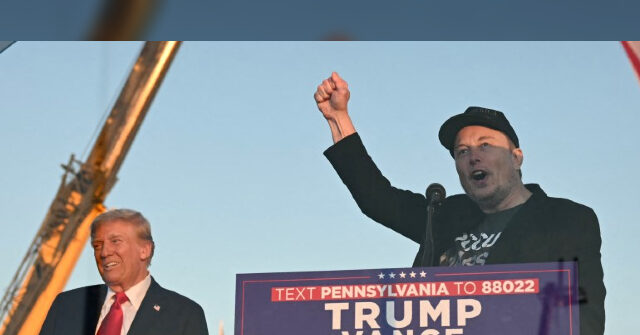Elon Musk made headlines over the weekend by attending a Donald Trump campaign rally in Butler, Pennsylvania, marking his first appearance at such an event. During his speech, Musk openly declared himself as “dark MAGA,” a more intense variation of support for the MAGA movement. His presence at the rally was significant as it coincided with Trump’s return to a location where a serious assassination attempt had occurred just months earlier. Musk expressed his admiration for Trump, describing it as an honor to be there, and emphasized the importance of character in times of adversity, particularly spotlighting Trump’s resilience following the assassination attempt, where a shooter narrowly missed hitting him.
The backdrop of Musk’s speech included recent violent events, such as an incident in which a 20-year-old man named Thomas Crooks aimed to assassinate Trump at a rally in Butler, resulting in chaos and tragedy. Musk referenced this attempt, contrasting Trump’s strong demeanor against President Joe Biden’s perceived frailty, using the phrase “blood coming down the face” to evoke the intensity of that moment. Musk invigorated the crowd with chants reminiscent of Trump’s battle cry, positioning the rally as not just a mere campaign stop, but as a critical juncture in their fight for political survival.
The tech billionaire expanded on his political stance by framing the upcoming election as a pivotal moment for democracy and free speech in America. Emphasizing that free speech is fundamental to democracy, Musk argued that without the ability to express and receive truthful information, citizens cannot engage in informed voting. He invoked the importance of freedom in shaping an effective democratic process and asserted that the Second Amendment plays a role in safeguarding the First Amendment, thereby intertwining gun rights with the right to free expression.
Musk’s rhetoric painted the election not only as a political contest but also as a cultural and ideological battle, suggesting that a victory for Trump is essential for the preservation of both the Constitution and democratic values. He urged attendees to mobilize by registering to vote and ensuring their voices were heard, voicing a sense of urgency about the implications of failure in the upcoming election. His message conveyed a stark warning: if citizens do not participate, the current electoral process may be their last opportunity to influence governance in America.
In aligning himself with Trump, Musk reinforced a narrative that positions the former president as a bulwark against threats to American freedoms. The billionaire’s passionate plea resonated with the audience, amplifying Trump’s longstanding assertions of a looming threat from the opposition, who Musk claimed sought to undermine essential liberties. This rally exemplified a fusion of celebrity influence and political activism, with Musk utilizing his platform and prominence to galvanize support and drive home the significance of engagement in the electoral process.
As the event concluded, Musk’s message highlighted the interdependencies between free speech, political engagement, and the safeguarding of democratic principles. His participation in the rally reaffirms how figures like himself can sway public opinion and foster passionate involvement in political discourse. The implications of Musk’s alignment with Trump reflect broader trends in American politics, where influential personalities are increasingly involved in shaping narratives around crucial issues like free speech, individual rights, and the moral fabric of democracy.

